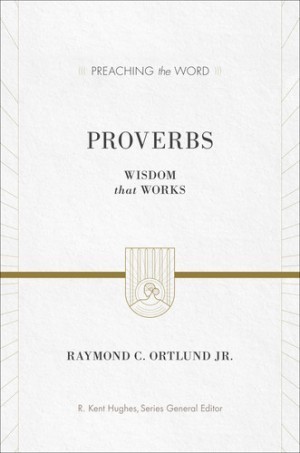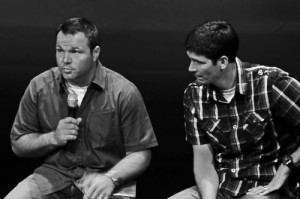Justin Taylor's Blog, page 224
March 30, 2012
Archaeological Discoveries and the World of Jesus
 Craig Evans, an outstanding scholar on Jesus, culture, archaeology, and history, has a new book out entitled Jesus and His World: The Archaeological Evidence (Westminster John Knox Press, 2012). WJK has provided discussion questions for those who want to read it in a reading group.
Craig Evans, an outstanding scholar on Jesus, culture, archaeology, and history, has a new book out entitled Jesus and His World: The Archaeological Evidence (Westminster John Knox Press, 2012). WJK has provided discussion questions for those who want to read it in a reading group.
In a recent article in the Huffington Post, Professor Evans summarizes the book's contents:
I begin by explaining what archaeology is: the excavation and study of the remains of material culture. In the case of Jesus it means the excavating and interpretation of remains from the first century B.C.E. and C.E. in Israel (Galilee to the north and Judea and Jerusalem to the south). It means correlating what we discover with relevant written records (such as the writings of the New Testament and the writings of Josephus, the first-century Jewish historian). It often means applying space-age technologies. It is hard work and it is very rewarding.
The archaeological evidence shows that Jesus grew up in a small village, Nazareth, about four miles from Sepphoris, a prominent city in the early first century C.E. This city had a Greco-Roman look, complete with paved, columned street, but its inhabitants were observant Jews. The evidence further shows that Nazareth was linked to a network of roads that accommodated travel and commerce. The quaint notion that Jesus grew up in rustic isolation has been laid to rest. The youthful Jesus may well have visited Sepphoris, whose theatre may have been the inspiration for his later mockery of religious hypocrites as play-actors.
The evidence for the existence of synagogue buildings in the time of Jesus is now quite strong. Archaeologists have identified at least seven such buildings that date before the year 70. It is in the context of the synagogue that Jesus would have matured in the religious tradition of Israel and heard Scripture read and interpreted. Although some historians think rates of literacy in the first-century Roman Empire were quite low, archaeological finds, such as the tablets found in Vindolanda, England, near Hadrian's Wall, or the thousands of graffiti etched on the scorched walls of Pompeii and Herculaneum, suggest that at least a crude literacy was widespread and reached all levels of society. This evidence, along with the Gospels' portrait of a Jesus who debates scribes and ruling priests, asking them if they had ever read this or that passage of Scripture, suggests that Jesus, founder of a movement that produced and collected literature, was himself literate.
Archaeological discoveries have given us a pretty good idea of the wealth of the ruling priests Jesus encountered in the precincts of Jerusalem's famous temple. We may have the name of Caiaphas, the name of the high priest who condemned Jesus, inscribed on an ossuary (bone box). Only one year ago it was reported that an ossuary has been found with the name of the priest's granddaughter. A number of other priestly ossuaries and possibly even the burial chamber of the family of Annas, father-in-law of Caiaphas.
Of great interest are several discoveries that have a bearing on the crucifixion and burial of Jesus. These include the skeletal remains of a man who had been crucified. (An iron spike is embedded in his right heel!) Despite his execution, his body was taken down from the cross and was properly buried, in accordance with Jewish custom. There is no reason to think that Jesus was treated any differently. His body was placed in a tomb, with the expectation that his bones later would be gathered and placed in his family's tomb. The Easter discovery dramatically altered this expectation.
March 29, 2012
Plastic Beauty
This video would be a good teaser/introduction to Mike Cosper's TGC article, "The Satanic Ideology of Photoshop":
Dove knows how to identify a problem—but not the problem, and not the solution. As David Powlison once commented:
It's a great example of the close co-operation and simultaneous interworking between common grace and noetic sin, isn't it.
On the one hand, very insightful, well-intended, blowing the cover on cultural idols/ideals, with an instinct that shows traces of a recognition of God's creation . . . and yet, on the other hand, it is fundamentally misguided in its self-referential self-affirming "salvation," in its frank suppression of that Creator, in its denial of the active and fallen human heart that willingly embraces lies
Cosper's article can be read here.
Being a Better Blog Commenter
I welcome blog comments, although they are often notorious for unfruitful and uncharitable discussions.
I hope this can be a place where we "seek understanding" before critiquing, where we are quick to listen and slow to speak, where we judge others charitably not critically, where we encourage and build up each other rather than tearing down and destroying each other.
I would encourage commenters to consider carefully the following commands and principles regarding our speech:
"Let your speech always be gracious, seasoned with salt" (Col. 4:6).
"By your words you will be justified, and by your words you will be condemned" (Matt. 12:37).
"Love one another with brotherly affection. Outdo one another in showing honor" (Rom. 12:10).
"Let no corrupting talk come out of your mouths, but only such as is good for building up, as fits the occasion, that it may give grace to those who hear" (Eph. 4:29).
Speak the truth in love (Eph. 4:15, 25).
"If anyone thinks he is religious and does not bridle his tongue but deceives his heart, this person's religion is worthless" (James 1:26).
Other policies and exhortations worth reading are quoted or summarized below.
Comments are most welcome.
I read every comment, though I do not respond to every one.
Blog commenting is one more avenue in which we can live out gospel-ignited love toward one another. A blog is not a place where we can take a vacation from Christian love; it is a prime opportunity to exercise it. Comment clearly, thoughtfully, briefly, humbly.
Obnoxious comments will be deleted. This is my blog, so I determine what crosses the line into being obnoxious. I welcome discussion and even debate, but I will not allow this blog to become a platform for the 'word-wars' against which the New Testament repeatedly warns us.
No anonymous comments.
Don't ride hobby horses. Don't make every post about your issue. Stay on target Gold Leader.
Don't be rude. It's a sin. Go ahead and speak passionately and forthrightly. But don't assume the worst about others. Don't put the worst possible construct on everyone's motives. Let go of your hate.
Don't slander. It's also a sin. Be careful with accusations. Avoid ad hominem attacks. If you pick a fight with everyone and refuse to reason with anyone I will ban you from my blog without warning and you will go the way of Alderaan.
Just because you can say something strongly does not mean you have something to say. Force may be with you, but try to make sense too.
And more from Kevin:
Debate ideas. State your convictions strongly. But don't be nasty. Don't get personal. Develop a strong inclination to avoid sarcasm and sweeping generalizations.
Remember that with most people, you have no idea who is really behind the comments. Don't jump to conclusions about "what Christians or non-Christians are like" or "what men or women are like" or "what Calvinists or Arminians are like" from a few blog comments. Anyone out there can say they are something or someone they are not.
I think comments are still an important part of blogs. They provide for feedback and public discourse. But yes, they are often obnoxious, discouraging, and unedifying. If the comments make you mad or sad, don't read them. Stay away. Just read the post. That's what most of you probably do already.
Keeping watch over blog comments can be very time consuming. I don't read all the comments, or even most of the comments when a thread goes on and on. I have an assistant who tries to monitor the comments too, but she can't follow blog traffic all day either. Having said that, for the foreseeable future we will be quicker to remove nasty, long, hyper-linked, and irrelevant comments and quicker to shut down the thread. If your comment gets deleted for whatever reason, don't write another comment complaining about censorship. That will be deleted too. If you want to say something to the world, start your own blog and get people to come there.
Do not fail to recognize a blog troll when he appears [Prov. 18:2; 12:18; 15:2, 4].
Do not respond in kind to a blog troll [Prov. 26:4; 15:1]
Do not expect a blog troll to receive correction [Prov. 17:10; 27:22; 12:15]
Do not attempt to rebuke the blog troll in a public forum [Matt. 18:15]
Do not acknowledge the comments of an unrepentant blog troll.
Do not be a blog troll.
We should actively intend good, seeking to "give grace to those who hear." That takes thought about one's motives, tone, framing, balance of emphases. . . .
Thoughtful work on that topic will break new ground, applying the call to "speak truth in love" into an instant-information context where all errors, blunders, sins, failings, and mere clumsiness are potentially available for public scorn.
What does it mean to forebear each other in such a world?
What does it mean to cover sins in mercy (not cover-up, but true covering in mercy), to allow others to find care and restoration in their own interpersonal context, rather than attempting to humiliate them before the whole world?
What does it mean to express the sort of communal tenderness that Dietrich Bonhoeffer captures so well in Life Together—a communal life that includes reproof as a form of love?
But the leading edge of our argument is to place checks on the tendency we all have to snide, sneering, self-righteous, gossipy, malicious words.
Any growth we can make in the direction of Ephesians 4:29 will make life much more joyous for all, and bring much glory to our God.
And even criticisms I make become more hearable when I the critic am not posturing, but actually care about others.
When I don't care, my bad attitude and superiority becomes my actual message.
Love is patient, love is kind . . . and then love is candid.
Ray Ortlund on Proverbs
 If I could have anyone in the world teach me the book of Proverbs, I think I'd choose Ray Ortlund: a pastoral shepherd and an Old Testament scholar who by grace embodies the ethos of proverbial wisdom and understands its consummation in Christ our wisdom.
If I could have anyone in the world teach me the book of Proverbs, I think I'd choose Ray Ortlund: a pastoral shepherd and an Old Testament scholar who by grace embodies the ethos of proverbial wisdom and understands its consummation in Christ our wisdom.
So I'm excited by the release of his expository messages, Proverbs: Wisdom that Works.
Some endorsements:
"The strength of Ray Ortlund's study of Proverbs is its Christ-centeredness. The wisdom of Proverbs loses none of its practical value, but rather is given its ultimate fulfillment as an expression of the wisdom of Christ."
—Graeme Goldsworthy, Visiting lecturer in Hermeneutics, Moore Theological College; author, Preaching the Whole Bible as Christian Scripture
"Proverbs: Wisdom that Works models powerful, profound, relevant expository preaching. The expositions are God-centered, Christ-centered, practical, evangelistic, life-changing, and life-giving. For Proverbs 1-9, each exposition digs deeply into the meaning of the passage in its original context, connects it with the New Testament (especially with Jesus Christ), and demonstrates astutely its contemporary relevance with illustrations and quotations. The last seven chapters bring together various proverbs under seven topics: the tongue, humility, family, emotions, friendship, money, and life and death. The oral style provides easy reading for deep, wise insights. A superb source for preachers preparing a series of Christian sermons on the book of Proverbs and for Bible study groups interested in studying biblical wisdom."
—Sidney Greidanus, Professor of Preaching Emeritus, Calvin Theological Seminary; author, Preaching Christ from the Old Testament
"Ortlund not only speaks wisdom, he models how to speak it. He not only lights the way on how to preach Proverbs, but on how to walk in wisdom—and he makes me want to do both! Almost immediately I had two reactions: 'Why am I not preaching Proverbs right now?' and 'Why am I not wiser by now?' Turn here not just to hear about wisdom, but also to taste it. You'll find the savor reverently worshipful, theologically rich, and relentlessly practical."
—John Kitchen, Senior Pastor, Stow Alliance Fellowship, Stow, Ohio; author, Proverbs: A Mentor Commentary
You can read the introduction and a couple of sermons here, or below:
March 28, 2012
Why We're Not Emergent: Five Years Later
Ted Kluck:
I'm viewing this article as a sort of five-year reunion. Imagine myself, Kevin, Don Carson, Brian McLaren, Doug Pagitt, Phyllis Tickle, Tony Jones and others all standing around awkwardly in a high school gymnasium with mixed drinks and nametags that read, "Hi, My Name Is: Brian McLaren" and saying things like, "So, what have you been up to since our particular brands publicly clashed and sold us both a lot of books a few years ago?" Rob Bell would be on the roster but will have missed the reunion in favor of giving a talk in a major sports arena or launching a television network.
Recently, by the grace of God, I've been made aware of some long-un-dealt-with areas of sin in my own life including (but definitely not limited to) arrogance, pride, cynicism and a kind of pervasive lack of humility. Not the kind of pervasive lack of humility which wears sunglasses in the building, demands the best of everything, and routinely big-times people. Not that kind at all – in fact, I was the antithesis of that – a real people pleaser. Rather, I was the kind of un-humble person who lived for the praise of others (and therefore used people for praise), and who would quietly seethe when I felt others were receiving credit or success that I thought I deserved more. In America we sometimes call that competitiveness, but in reality it's just sin (jealousy, envy) and it makes a person (read: me) the worst kind of jerk at times. Slowly realizing that has been like having my skin scraped away with sandpaper. It's been painful and humbling. I think previously I had confused failure with humility – that is, when something would go wrong, as it often did, I would confuse that with "becoming more humble." I apologize for that, and I particularly apologize for how that attitude/cynicism found its way into some of my writing.
So all of that to say this essay probably won't be the zinger-filled ha-ha fest that some of my past emergent/emerging/missional-related writings has been.
You can read the whole thing here.
The Risk of Transracial Adoption?
From an article I wrote a few years ago for Modern Reformation:
We don't regard our transracial adoption as something especially noble or sacrificial, or anything like a social statement. This is simply the way that God in his providence has designed our family to expand, and we sense his great grace in the way he has knit our family together.
But some people still wonder if transracial adoption is all that wise. What if they are called names in school? What if their friends tell our children that my wife and I are not his "real" mommy and daddy? What if our kids have an identity crisis, unable to figure out who they really are?
All of these things may indeed happen with our children.
But the truth is, all of our children are going to face various forms of challenges, and we simply cannot predict with any degree of certainty what particular obstacles they will deal with. Nor can we prevent all of them.
Will our kids be eloquent and persuasive, or stammer with stage fright? Will they be the star athletes, or the class klutzes? Will they be leaders or followers? Trendsetters or always one step behind? Will they be healthy or sickly? Will they be mocked for following Christ and swimming against the culture stream? We simply don't know, and there usually does not seem to be much purpose in planning our lives around the minimization of challenges we cannot control.
It's important to recognize that in the midst of talking about spiritual adoption, Paul listed a requirement of kingdom citizens who are to be heirs of God and co-heirs with Christ—we will receive an inheritance "provided we suffer with him in order that we may also be glorified with him" (Rom. 8:17). To be a Christian is a call to suffer: "through many tribulations we must enter the kingdom of God" (Acts 14:22). If we're surprised at suffering then it's because we haven't read our Bibles closely enough: "Beloved, do not be surprised at the fiery trial when it comes upon you to test you, as though something strange were happening to you" (1 Pet. 4:12). If a disciple wants to be like his teacher, and a servant like his master, then we are going to be maligned like Jesus was (see Matt. 10:25).
Now with all of this said, no one wants to create situations of undue suffering for their children. There are times when transracial adoption may be unwise. For example, we have American friends who are in the adoption process and who will be serving in cross-cultural missions in the Middle East. Being an African American child in a white family in an Islamic country that already stigmatizes adoption would be exceedingly difficult.
As long as sin remains—this side of the return of Christ and the ushering in of the news heavens and the new earth—racism will remain. There is virtue neither in overstating or unstating this reality. But the idea of having qualms about transracial adoption (or interracial marriage) because it will create opportunities for more racial prejudice doesn't ultimately make a lot of sense. As John Piper has commented, "It's like the army being defeated because there aren't enough troops, and the troops won't sign up because the army's being defeated."
Matt Chandler Installed as the New President of Acts29
 Mark Driscoll, co-founder of the Acts29 Church Planting Network, has handed off the reins of leadership to Matt Chandler. The headquarters for Acts29 will move from Seattle to Dallas.
Mark Driscoll, co-founder of the Acts29 Church Planting Network, has handed off the reins of leadership to Matt Chandler. The headquarters for Acts29 will move from Seattle to Dallas.
Mark concludes his post on the transition in this way:
I love Pastor Matt, respect him, and appreciate him. He is a bridge-builder across many tribes, a great Bible teacher, godly man, and geographically located in an easy place to travel to and from. His church is now large enough and well established to greatly serve Acts 29. He has my support, and I pray he would have yours as well.
John Piper and Tim Keller on Race and the Christian: Livestreamed Tonight
DG:
Wednesday night, March 28, John Piper and Tim Keller will team up in New York City for a conversation, moderated by Anthony Bradley, about the gospel and race. . . .
The event will be live-streamed from 7:00-9:00PM (EST). We encourage you to gather with friends or a small group to watch it together and continue the conversation.
If you have any questions for John Piper or Tim Keller about the topic of race and the Christian you can email them to raceandthechristian@redeemer.com. The Q&A will interact with these questions as well as with questions from the live audience.
This event is sponsored by Crossway and hosted by Redeemer's Grace and Race Team.
March 27, 2012
Jason Meyer: Candidate to Succeed John Piper at Bethlehem Baptist Church
 Tonight the elders at Bethlehem Baptist Church unanimously voted to present Jason Meyer as their candidate to succeed John Piper, pending congregational approval. The announcement from executive pastor Sam Crabtree can be read here.
Tonight the elders at Bethlehem Baptist Church unanimously voted to present Jason Meyer as their candidate to succeed John Piper, pending congregational approval. The announcement from executive pastor Sam Crabtree can be read here.
The vote will come in two stages: (1) on May 20, 2012, the congregation will vote on him as associate pastor for preaching and vision, beginning that role on August 1, 2012; (2) then, as Piper's pastoral ministry draws to an end, there will be a vote for Meyer as pastor for preaching and vision.
Bethlehem has provided a number of documents, including Sam Crabtree's "What I Think God Is Doing With Succession at Bethlehem Baptist Church: An Overview," an advocacy paper from the Search Team, and Meyer's CV.
John Piper writes to the congregation of Bethlehem regarding Meyer's candidacy:
I joyfully and expectantly commend him to you with all my heart. Not only because of a long list of gifts and graces and competencies, but also because I believe God has chosen him and anointed him for this role. May the Lord confirm this with a hope-filled, happy, unified vote of the Bethlehem family.
Piper on the Transition
Piper has provided a document answering several questions:
How do you feel about Jason's candidacy?
What was your role in choosing and testing Jason Meyer?
Why are you stepping down from your pastoral role?
What will you do?
What will your relationship to Bethlehem be?
How do you feel?
In short, Piper is convinced that Meyer is the right man to succeed him in Bethlehem's pulpit; he was involved in the process of selecting two candidates for this position but then recused himself so that it would be a decision of the whole elder council without being unduly swayed by his significant influence; he still has joyful energy to preach but feels increasingly incompetent and less focused for fruitful and effective visionary leadership of Bethlehem's organization and structure; they will remain at the church (after a year away) and he serve as chancellor and teacher at Bethlehem College and Seminary, and as founder and teacher at Desiring God.
Piper summarizes his feelings at this stage as follows:
Overwhelmed with thankfulness for God's faithfulness for 32 years, and for his provision for the next season under Jason.
Sorrowful for my personal and ministerial failures of the last decades.
Affectionate for you, the people I have loved and served.
Confident that God has greater things in store for you than you can imagine. And for us. For the Christian, the best is always yet to come. Always.
You can read the whole document here.
Introducing Jason Meyer
Here is a brief biographical sketch of Jason Meyer. He grew up in South Dakota and did his undergraduate work at Oklahoma Wesleyan University (Bartlesville, Oklahoma)—where he sensed the Lord calling him to vocational ministry during his sophomore year.
After graduating, Jason married Cara Wieczorek, and in the summer of 1999 they became members of Bethlehem Baptist Church as Jason entered The Bethlehem Institute apprenticeship and seminary program (1999-2001).
From there they moved to Louisville, as Jason earned an M.Div. from the Southern Baptist Theological Seminary (2002) and then a New Testament Ph.D. under Tom Schreiner (2007).
While completing his Ph.D., Jason served as pastor of Orville Baptist Church in Pleasureville, KY. From 2006-2009 he was Dean of Chapel and Assistant Professor of New Testament and Greek at Louisiana College in Pineville, LA. In the spring of 2010, the Meyers lived in Addis Ababa, Ethiopia, where Jason taught New Testament at Evangelical Theological College and their family pursued adoption.
In the summer of 2010, Jason and Cara returned to Bethlehem with their four children—two girls, and two boys from Ethiopia—as Jason accepted an appointment at Bethlehem College and Seminary, where he serves as assistant professor of New Testament.
He is the author of The End of the Law: Mosaic Covenant in Pauline Theology (B&H Academic, 2009)—a revision of his dissertation—and he is currently writing Preaching: A Biblical Theology for Crossway (due out in August 2013).
Meyer is 36 years old. Piper was 34 when he began his pastoral ministry at Bethlehem in 1980.
You can hear some of his sermons online: "Putting the Word to Work through Prayer" (2 Timothy 3:14-17) and "The Heart of Christmas" (Matthew 2:1-12), or you can watch below a video of him preaching at the BCS chapel "On Love" (1 John 3:11-18):
Can Flannery O'Connor Help Us to View the "Blue Like Jazz" Film?
Anthony Parisi, writing at the White Horse Inn, provides an answer.
Justin Taylor's Blog
- Justin Taylor's profile
- 44 followers




